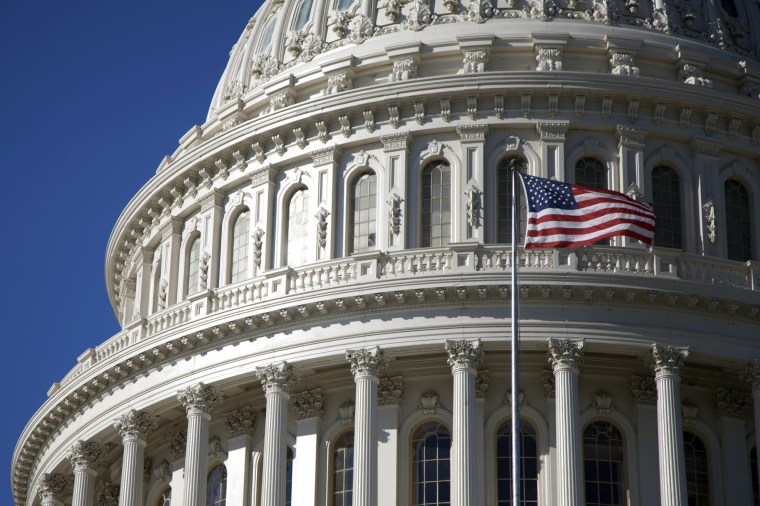The Senate Democratic effort to pass extended unemployment benefits appeared to be lost. Three months ago, congressional Republicans allowed the jobless aid to lapse -- 1.3 million Americans lost their benefits a few days after Christmas, a total that's grown to nearly 2 million since -- and GOP senators have blocked repeated attempts to restore the funding.
As recently as a few days ago, it looked like the latest effort would fail at the hands of another Republican filibuster, but everything changed late yesterday afternoon. Sen. Jack Reed (D-R.I.), who's helped spearhead the fight, called it a "bipartisan breakthrough."
After months of inaction, the Senate might finally act to restore federal unemployment benefits as a small handful of Republicans broke from their party to support a new bipartisan compromise. Five Republican senators joined five Democrats to support a new proposal that would restore jobless benefits for five months, paid for by a tweak to federal pension insurance and an increase in customs fees for imported merchandise, according to a joint press release from Sens. Jack Reed of Rhode Island, a Democrat, and Dean Heller of Nevada, the lead Republican on the bill. GOP Sen. Susan Collins of Maine, Rob Portman of Ohio, Lisa Murkowski of Alaska, and Mark Kirk of Illinois have co-sponsored the legislation.
The headcount matters -- because Republicans refused to let the Senate vote up or down on unemployment benefits, the Democratic majority needed five GOP votes. Those votes are now in place.
The "pension smoothing" financing is a little tricky -- this was easier when Republicans agreed, as recently as 2010, not to worry about whether jobless aid is paid for -- but the key detail to keep in mind is that this new compromise applies benefits retroactively. In other words, if you got cut off on Dec. 28, and you're still struggling to find work, you're about to get a big check. (And because these benefits tend to be stimulative -- people spend the money -- this is a smart investment in people who need a hand.)
As for the politics of this, there are two important angles to keep an eye on.
First, because 60 votes are now in place, what will the rest of the Senate Republicans do, knowing in advance that the bill will pass? Remember, extended unemployment benefits are popular -- and it's an election year -- but many GOP lawmakers are ideologically opposed to the policy itself.
Senators feeling vulnerable -- Mitch McConnell, I'm looking in your direction -- or eyeing a presidential campaign in the near future, may pause before reflexively opposing this one.
Second, even after the Senate bill passes, the proposal would head to the Republican-run House, where it may very well die. It's tempting to think the lower chamber would feel some pressure to act when a popular measure passes the Senate with bipartisan support, but there's no shortage of examples of House Republicans simply not caring.
For many GOP House members, extended unemployment benefits are simply awful. A month ago, one prominent Republican went so far as to call the aid "immoral," for reasons that still don't make any sense.
Regardless, the on-again, off-again fight over jobless benefits is now very much back on again.
